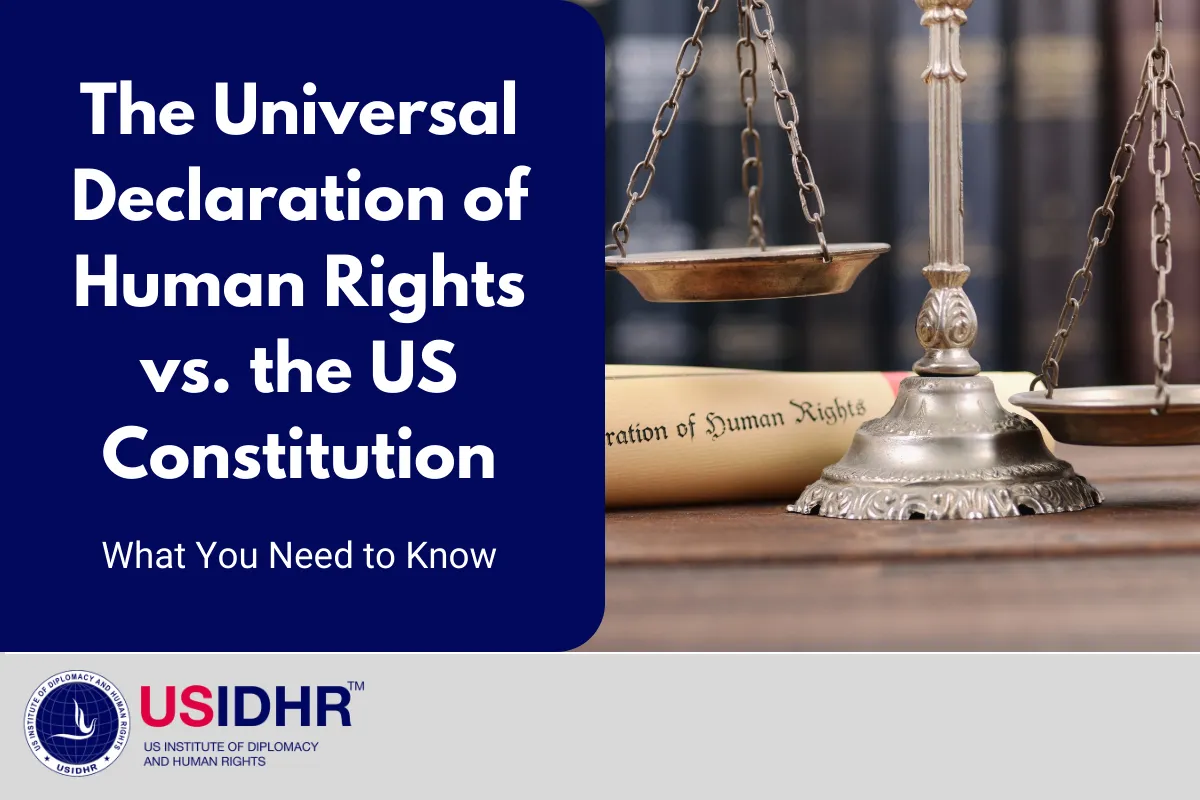
The Universal Declaration of Human Rights vs. the US Constitution: What You Need to Know
The Universal Declaration of Human Rights, adopted by the United Nations General Assembly in 1948, provides a comprehensive set of rights that apply to all people, regardless of their nationality, race, or religion. While the US Constitution guarantees a number of important rights, it primarily focuses on the relationship between the government and the people. In this blog, we will explore the differences between the two documents and why understanding the Universal Declaration of Human Rights is essential in today’s globalized world.
"Human rights are not attained by a single act, nor are they lost by a single act." - Eleanor Roosevelt
The Inherent Nature of Human Right
The Universal Declaration of Human Rights includes 30 distinct rights that cover a wide range of issues, from basic needs such as food, shelter, and medical care, to more complex issues such as the right to education and the right to work. The document recognizes the inherent dignity and worth of every human being and guarantees their right to live free from discrimination, persecution, and oppression. In contrast, the US Constitution primarily focuses on the rights of citizens, such as the right to bear arms and the right to a fair trial.
Human rights are universal rights that every human being is born with, regardless of their nationality, race, religion, or gender. They are considered inherent to our humanity and are not granted by governments or any other authority. Human rights are therefore inalienable and cannot be taken away, even by governments or other powerful entities.
The essential difference between human rights and civil rights is that human rights are seen as natural, fundamental, and universal, whereas civil rights are the rights that a government recognizes and grants to its citizens. Civil rights are often enshrined in national constitutions or laws and may vary depending on the country and its political system. Civil rights, unlike human rights, can be changed or taken away by governments, which makes them more vulnerable to political and social pressures.
The Right to Education: Recognized by the Universal Declaration but Overlooked by the US Constitution
One human right that is found in the Universal Declaration of Human Rights but is not explicitly mentioned in the US Constitution is the right to education. Article 26 of the Universal Declaration of Human Rights states that “everyone has the right to education” and that education should be aimed at the full development of the human personality and the promotion of human rights and fundamental freedoms.
While the US Constitution does not explicitly mention the right to education, it does include some provisions that are related to education, such as the 14th Amendment’s guarantee of equal protection under the law, which has been interpreted to mean that all children have the right to equal access to education. In addition, the Supreme Court has ruled in a number of cases that education is a fundamental right that is protected by the Constitution.
However, the lack of an explicit mention of the right to education in the US Constitution has led to some criticism that the United States has not done enough to ensure that all children have access to quality education. This is in contrast to other countries that have explicitly recognized the right to education in their national constitutions and have taken steps to ensure that it is fully realized, such as by providing free and compulsory primary education to all children.
In today’s globalized world, it is essential to have an understanding of the Universal Declaration of Human Rights, as it offers a universal framework for human rights that transcends national boundaries. While the US Constitution remains an important document for understanding American law and governance, it is only one of many documents that make up the broader landscape of human rights.
Understanding the difference between human rights and civil rights and the importance of protecting these rights for all people, regardless of their nationality or background, is crucial in ensuring that we promote and protect human rights for everyone. But how does one go about gaining this understanding and sharing it with others? One organization committed to this cause is USIDHR, which offers a human rights certificate program to certify human rights consultants who can teach others about their rights.
If you’re interested in becoming a human rights consultant and helping to promote and protect human rights, click here to register for USIDHR’s human rights training and certification program. Together, we can work to ensure that everyone’s human rights are respected and upheld.
Reference list:
United Nations. (1948). Universal Declaration of Human Rights. Retrieved from
https://www.un.org/en/about-us/universal-declaration-of-human-rightsCornell Law School Legal Information Institute. (n.d.). US Constitution. Retrieved from
https://www.law.cornell.edu/constitution/US Institute of Diplomacy and Human Rights (n.d.). Human Rights vs Civil Rights. Retrieved from
https://usidhr.org/human-rights-vs-civil-rights/Human Rights Watch. (n.d.). What are civil and political rights? Retrieved from https://www.hrw.org/news/2007/06/15/what-are-civil-and-political-rights
UNICEF. (n.d.). The right to education. Retrieved from
https://www.unicef.org/education/education-rightsLegal Information Institute. (n.d.). Equal protection. Retrieved from
https://www.law.cornell.edu/wex/equal_protectionNational Constitution Center. (2019). Landmark Supreme Court cases on education. Retrieved from https://constitutioncenter.org/blog/landmark-supreme-court-cases-on-education

